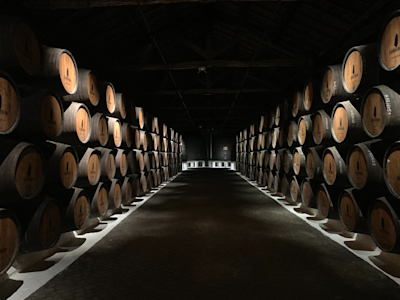Getting Started
1. Understand the basics of wine investment
Learn the key factors that affect wine prices, such as producer, vintage, region, and rarity. Understand the different types of wine investment, such as buying bottles or investing in wine funds. Research the performance of the wine market over the last few decades to assess its potential as an investment.
2. Choose the right wines to invest in
Look for wines with a proven track record of appreciation. Consider investing in wines from regions with a strong reputation for producing high-quality wines, such as Bordeaux, Burgundy, and Napa Valley. Choose wines from producers with a history of producing exceptional wines
3. Build a diversified portfolio
Don't put all your eggs in one basket - invest in a variety of wines to reduce your risk. Invest in wines from different regions, producers, and vintages to diversify your portfolio. Consider investing in a wine fund or working with a professional wine investment advisor to help you build a diversified portfolio.
4. Store your wine properly
Wine is a delicate product that requires proper storage to maintain its quality and value. Invest in a professional storage facility or wine cellar that maintains the right temperature, humidity, and light conditions. Don't move your wine too often - frequent transportation can damage the bottles and reduce their value.
5. Sell your wine at the right time
Wine is a long-term investment, and it's important to sell at the right time to maximize your returns. Keep an eye on the wine market and sell when prices are high. Work with a professional wine investment advisor to help you determine the right time to sell your wine.
6. Work with a wine investment platform like Vint
Wine is a long-term investment, and it's important to sell at the right time to maximize your returns. You can try to do this on your own or work with a team of professionals who will help you do this, like the team at Vint.co
Frequently Asked Questions
Q: Is wine investment a good idea? A: Wine investment can be a profitable and unique way to diversify your portfolio. However, it's important to do your research and invest in the right wines to maximize your returns.
Q: What types of wine should I invest in? A: Look for wines with a proven track record of appreciation, such as Bordeaux, Burgundy, and Napa Valley wines. Invest in wines from producers with a history of producing exceptional wines.
Q: Can I make a profit by investing in wine? A: Yes, you can potentially earn impressive returns by investing in wine. However, wine investment is a long-term investment and requires proper storage and management to maintain its value.
Conclusion
Investing in wine can be a profitable and exciting way to diversify your portfolio. However, it's important to do your research and invest in the right wines to maximize your returns. By following the tips and advice in this article, you can build a profitable wine investment portfolio and enjoy the benefits of this unique asset class.
Disclaimer: The information provided in this blog is for educational and informational purposes only and should not be construed as financial advice. Investing in any asset carries a risk of loss, and readers should do their own research and due diligence before making any investment decisions. The author and publisher of this blog are not responsible for any losses, damages, or other liabilities that may arise from your use of the information presented here.


